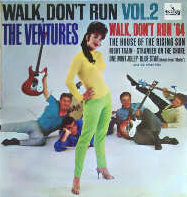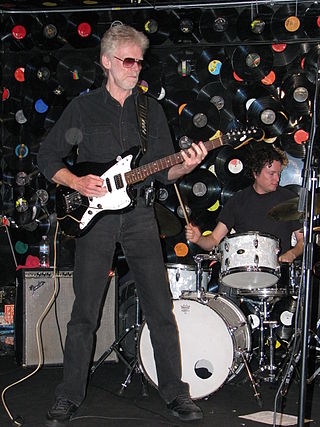
Davie Allan is an American guitarist best known for his work on soundtracks to various teen and biker movies in the 1960s. Allan's backing band is almost always the Arrows, although the Arrows have never had a stable lineup.

The Ventures are an American instrumental rock band formed in Tacoma, Washington, in 1958, by Don Wilson and Bob Bogle. The band, which was a quartet for most of its existence, helped to popularize the electric guitar across the world during the 1960s. While their popularity in the United States waned in the 1970s, the group remains especially revered in Japan, where they have toured regularly. The classic lineup of the band consisted of Wilson, Bogle, Nokie Edwards, and Mel Taylor (drums).
Johnny Henry Smith II was an American cool jazz and mainstream jazz guitarist. He wrote "Walk, Don't Run" in 1954. In 1984, Smith was inducted into the Alabama Jazz Hall of Fame.

"Walk This Way" is a song by the American rock band Aerosmith. Written by Steven Tyler and Joe Perry, the song was originally released as the second single from the album Toys in the Attic (1975). It peaked at number 10 on the Billboard Hot 100 in early 1977, part of a string of successful hit singles for the band in the 1970s. In addition to being one of the songs that helped break Aerosmith into the mainstream in the 1970s, it also helped revitalize their career in the 1980s when it was covered by hip hop group Run-D.M.C. on their 1986 album Raising Hell. This cover was a touchstone for the new musical subgenre of rap rock, or the melding of rock and hip hop. It became an international hit, reaching number 4 on the Billboard charts and becoming the first hip hop single to reach the top five on the charts, and won both groups a Soul Train Music Award for Best Rap Single in 1987 Soul Train Music Awards. Both versions are in the Grammy Hall of Fame.

Nole Floyd "Nokie" Edwards was an American musician and member of the Rock and Roll Hall of Fame. He was primarily a guitarist, best known for his work with The Ventures, and was known in Japan as the 'King of Guitars'. Edwards was also an actor, who appeared briefly on Deadwood, an American Western drama television series.
The Ventures have released over two hundred fifty albums beginning with Walk Don't Run (1960), and over 150 singles. The original US albums and singles are indicated by their catalog numbers and Billboard (BB) and Cashbox (CB) chart peak positions
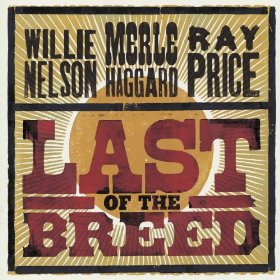
Last of the Breed is a two-disc album by American country music artists Willie Nelson, Merle Haggard and Ray Price, released in 2007. It debuted at number 64 on the U.S. Billboard 200, selling about 13,000 copies in its first week. The album has 100,000 copies in the U.S. as of May 2015. The album was ranked number 33 on Rolling Stone's list of the Top 50 Albums of 2007.
"Walk, Don't Run" is an instrumental composition written and originally recorded by jazz guitarist Johnny Smith in 1954, which achieved worldwide fame when The Ventures recorded a cover version in 1960.

Hawaii Five-O is an instrumental album by the Ventures. It is named for the popular 1968 television series, and featured the theme song from the series composed by Morton Stevens as its title track. It was released in 1969 on Liberty Records LST-8061 and reached #11 on the Billboard Top LP chart, staying for 24 weeks. The album was certified gold by RIAA on July 21, 1971. The popularity of the album was propelled by the hit title track, which reached #4 on the Billboard Pop Singles chart.

The Ventures in Space is an LP album by the guitar-based instrumental group the Ventures, released in 1964. Information on its jacket states that "All of these unusual & other-worldly sounds have been created with musical instruments rather than electronic gimmicks". It was one of the first albums on which the group played the new Mosrite brand guitars instead of their traditional Fender instruments. The album was released in 1964 on the Dolton label, and reissued in the late 1970s by Pickwick Records.

Chuck Berry's Golden Decade is a compilation of music by Chuck Berry, released in three volumes in 1967, 1973, and 1974. Covering the decade from 1955 to 1964, each volume consists of a two-LP set of 24 songs recorded by Berry. The first volume reached number 72 on Billboard's Pop Albums chart. The second volume peaked at number 110. The third volume, which included only two hit singles among its tracks, did not chart.

The Horse Legends is the twentieth album by American singer-songwriter Michael Martin Murphey. This is Murphey's tribute to the horse and contains a duet with Johnny Cash on "Tennessee Stud", cover versions of Dan Fogelberg's "Run for the Roses" and Gordon Lightfoot's "The Pony Man", and re-recordings of Murphey's "Wildfire" and "The Running Blood". The Horse Legends was the last album Murphey recorded for Warner Bros. Records.
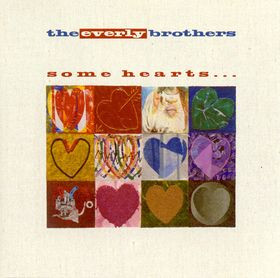
Some Hearts... is the Everly Brothers' final studio album. It was released November 4, 1988, but re-released in 1989. The album did not chart.

The Everly Brothers Sing Great Country Hits is an album by the Everly Brothers, originally released in 1963. It was re-released on CD in 2005 on the Collectors' Choice Music label.
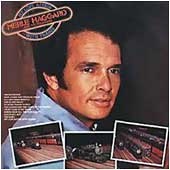
My Love Affair with Trains is the twentieth studio album by American country music singer Merle Haggard and The Strangers, released in 1976. The LP rose to number 7 on the Billboard country albums chart.

Bull Durham Sacks & Railroad Tracks is an album by American folk musician Ramblin' Jack Elliott, released in 1970. It was his second, and last, release on the Reprise label. Elliott did not release another studio album for eleven years.

Let It Be Me: Mathis in Nashville is an album by American pop singer Johnny Mathis that was released on September 21, 2010, by Columbia Records and focused upon popular country songs. With the exceptions of the traditional folk song "Shenandoah" and George Strait's "We Must Be Lovin' Right" from 1993, the heyday of the selections that Mathis is covering coincided approximately with the first 20 years of his career, starting with Elvis Presley's "Love Me Tender" from 1956.
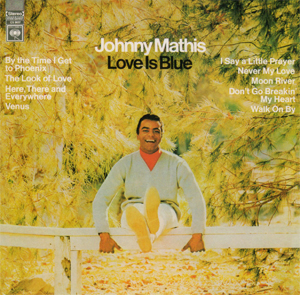
Love Is Blue is an album by American pop singer Johnny Mathis that was released on March 6, 1968, by Columbia Records and adhered even more strictly to the concept of the "cover" album of recent hits than its predecessor in that five of the 10 songs selected for the project were chart hits for the original artists within the previous year and another three had charted within the previous decade. Even the two remaining selections that did not bring chart success to the original artists were by the hit songwriting teams of Burt Bacharach and Hal David and John Lennon and Paul McCartney and left no room for the usual inclusion of some original songs or material from Broadway.

Walk, Don't Run is the debut studio album by American instrumental surf rock band The Ventures, released in 1960 by Dolton Records. Much of the album was recorded following the success of the hit single of the same name. The LP was recorded at Joe Boles' home studio in Seattle, Washington, as was their second album, titled The Ventures. His was a local studio where other early Dolton artists also recorded.
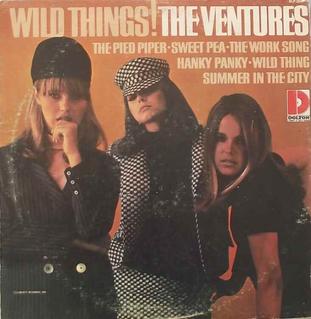
Wild Things! is a 1966 studio album by American band the Ventures, released on Dolton Records BLP-2047 (mono) and BST-8047. A 4-track reel-to-reel release was subsequently issued by Music Tapes, Inc. The album is noted for its marked turn towards a heavier sound in comparison to earlier Ventures releases, and the standout track Wild Child which was prominently featured as a sample in "Start the Commotion" by The Wiseguys.
